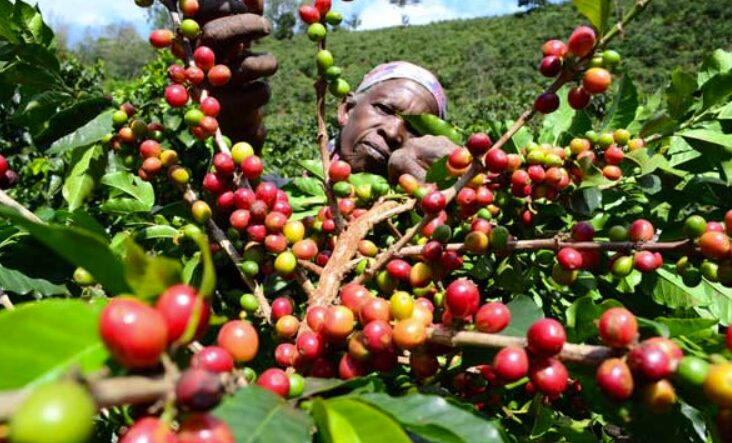A centralised payment system for coffee farmers, to be handled by the Co-operative Bank of Kenya, will go into effect beginning July 2025.
The model aims to replace a long-standing arrangement managed by cooperative societies, a system blamed for delays and opaque transactions.

Cooperatives and MSMEs Cabinet Secretary Wycliffe Oparanya announced the change during a forum with coffee growers, stating that the move seeks to bring order and discipline into an industry often marred by manipulation and late remittances.
“Coffee growers have endured years of exploitation within their own ranks. This step is long overdue,” Oparanya remarked.
Under the new arrangement, farmers will receive 80 per cent of sales proceeds directly through their accounts at Co-op Bank.
The remaining 20 per cent will be allocated to cooperative societies for operational needs.
Any request to retain a larger portion will require written approval from the ministry, with full disclosure on the rationale.
The revamped model is structured to expedite payment timelines.
Farmers are expected to be paid within five days of sales at the Nairobi Coffee Exchange.
The shorter cycle is intended to replace the prolonged waits that left many relying on credit to cover basic needs.
Cooperative societies will maintain a role in supporting production, particularly by facilitating access to inputs such as fertilisers and crop protection products.
The administrative change does not remove them from the value chain, though their financial gatekeeping role is being curtailed.
During a recent meeting in Ndumberi, Kiambu, Oparanya reassured growers that the system would streamline transactions and reduce room for manipulation.
Francis Ngone, chair of the Murang’a Coffee Farmers’ Co-operative Union, weighed in on the development, urging the government to strengthen the cooperative structure rather than diminish its role. Murang’a County currently hosts 144 factories under 52 cooperative societies.
“Co-ops play a central role in supporting growers on the ground,” Ngone said.
“Removing them from the payment process could isolate farmers who depend on these networks for more than just finances.”
The new structure signals a turn in the country’s coffee sector, which has long struggled to balance farmer welfare with efficient revenue flows.
Whether this shift brings sustained improvement will become clearer in the months following implementation.

















